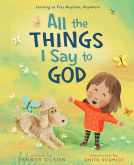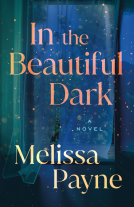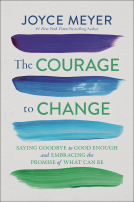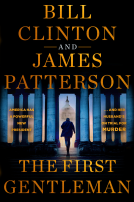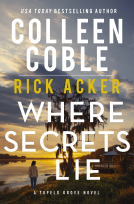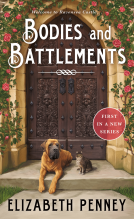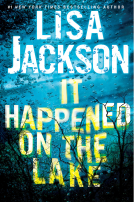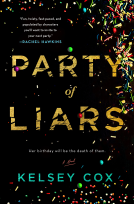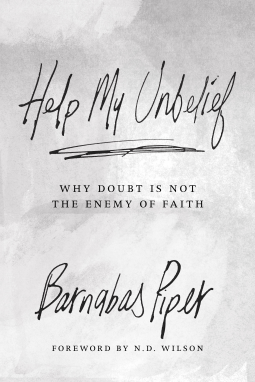
Help My Unbelief
Why Doubt Is Not the Enemy of Faith
by Barnabas Piper
This title was previously available on NetGalley and is now archived.
Send NetGalley books directly to your Kindle or Kindle app
1
To read on a Kindle or Kindle app, please add kindle@netgalley.com as an approved email address to receive files in your Amazon account. Click here for step-by-step instructions.
2
Also find your Kindle email address within your Amazon account, and enter it here.
Pub Date Jul 01 2015 | Archive Date Aug 31 2015
David C Cook | David C. Cook
Description
Instead of making Himself smaller, God invites us into a larger faith. One that has room for questions, victories, failures, and mystery. Because belief in an infinite God by finite humans is an act of exploration ... a process of learning—and then embracing—what we can't learn but can trust.
Discover the God who not only desires our belief but actually welcomes our curiosity.
Available Editions
| EDITION | Paperback |
| ISBN | 9781434706928 |
| PRICE | $14.99 (USD) |
Average rating from 32 members
Featured Reviews
Help My Unbelief is one of the best books I've read this year. It is one of the best books I've read in a long time. It's an honest look at doubt: believing doubt and unbelieving doubt. It is about coming to terms with the tension of the Christian life. In part, it is inspired by an encounter found in Mark 9:17-29. I'll share the most relevant verse: I do believe; help my unbelief.
Barnabas Piper shares a bit of his testimony and what he's learned since his big "aha" moment when he realized the vast difference between knowing about God and knowing God.
I think many people who have grown up in the church can relate to it. The book is honest and straightforward. It isn't a book that promises to have all the answers to all the questions you might have today and in the future. It isn't a book that promises an easy fix to your current faith dilemma.
I should mention that one thing this book is not: it's not an apologetic book seeking to prove anything about God: his existence, his goodness, his perfection.
It is an explores questions like: what is faith? what is belief? what is doubt? is there more than one kind of doubt? can doubting ever be a good thing? where do I go with my doubts and questions? what can I know--what can anyone know--about God? Can I have peace even if I don't have all the answers? will I always struggle with sin?
I loved, loved, LOVED this one. I loved it because it was thought-provoking and engaging. I loved it because it was so very honest. I thought Piper made some great points as well. I thought the appendix READING THE BIBLE TO MEET GOD was absolutely wonderful. It should be must-read for every believer.
 JT T, Reviewer
JT T, Reviewer
Unreal. Barnabas tackled a tough topic and he did it with excellence. This is a great resource to give out to either those who are struggling in their faith or those who have no faith. It is so honest and real that those who don't believe could at least be drawn in a bit closer to the Gospel of Jesus. I also love this book for selfish reasons...this is a verse I have prayed over many times. I believe, help my unbelief. This was a superb book of honest, raw truth. Thanks.
 Conrade Y, Reviewer
Conrade Y, Reviewer
Doubt is not the enemy of faith. Unbelief is not necessarily bad. In fact, for author Barnabas Piper, it is necessary for authentic faith. As a son of the famous evangelical, John Piper, Barnabas is no stranger to the Church or all things evangelical. Go to Church. Join the Sunday School. Have faith. Be baptized. Pray. Obey your parents. Believe in the Bible. Be well behaved, especially when you are a pastor's kid! Growing up in such an environment, there is a strong tendency to dumb down doubts so as to raise up the level of faith. It may work for kids, but as kids grow into young adults, they will start to be more inquisitive, to probe, and to question the norms. Looking at the famous words of Mark 9:24, which the book's title had borrowed from, Piper moves beyond the "Lord I believe" toward the "Help my unbelief" phase of life. He eases readers toward the tension of faith and doubt; belief and unbelief; the ups and downs of the spiritual life. There are parts of the Bible that are very clear to us, and parts that are mysterious. The reason for the tension is because both sides shed light on truth. The Bible does not simply spout out answers to life, it raises questions too. Asking questions does not mean a lack of faith. It simply means wanting to know the truth at a more profound level. It is acknowledging the mystery without giving up our faith. Such an attitude brings us back to what faith and belief is about. Knowledge without experience is incomplete.
Several topics are covered. Probing the topic of belief, we learn that even devils believe. Belief is not mere "mental assent" but connected to obedience and affirmative actions because of it. Belief is not just the right thoughts or concepts but actionable. Belief is about transformation of the individual from the inside out. Just having the right knowledge and belief is not enough. It demands a response. Just listening to a sermon is not enough. We need to act upon what we have heard. On knowing God, Piper helps us appreciate the place of mysteries, asking the question: "Would we love mysteries if we couldn't solve them?" Can we truly and fully comprehend God? While we may have intellectual agreement, the emotional and spiritual assents are quite different. Here, Piper adopts an apologetic angle, asking what it means to say God is infinite and God is perfect. The trouble with many people is that they tend to equate goodness and perfection according to their own world standards or some metaphysical level that is impossible to understand. Knowing God is not about knowledge. It is about a personal relationship. When this personal relationship is established, trust, confidence, assurance, and faith will come into play not merely at an intellectual level but something deeper. He tackles some contemporary responses to God and religion, addressing secularist culture as well atheists like Richard Dawkins. In trying to see from the perspectives of world under the umbrella of relevance, we may have unwittingly failed to see more from the perspective of God under the context of reverence. On prayer, Piper goes back to Mark 9:24 to ask about the origin of the father's five words, "I believe; Help my unbelief." It is not a statement but a request. It is not a request aimed anywhere but directed at Jesus. It is not a prayer of disbelief but a desire to want to believe. We may not have perfect faith but we can certainly ask.
The central theme of the book is faith and doubt, which Piper compares and contrasts it to the "already"/"not yet" tension. Two main categories are described. The first is "unbelieving doubt" which is a crippling kind of idea that refuses to let God be God. It is rebellion. It does not want to seek out answers other than self-revelation. Whatever questions raised lead one toward unbelief. The second is "believing doubt" which is a kind of questioning that leads to faith and a desire to want to believe. There is much grace in it. It is this second category that the author places more emphasis upon, to encourage us to be bold to ask questions and also to be conscious that there will always be a point of mystery that we simply had to wait and trust God to reveal in good time. Another important topic is the "how do we believe" question. Aware that methods and strategies are limited by themselves, readers are encouraged to avoid the kind of faith that remains only at a mental level. There must be transformation. There needs to be a desire to honour God, not just believing the right things or winning the correct arguments. It is ultimately about that relationship with God. The more we know God, the more we can trust and not become victims of atheistic slander or secularist doubters. Those who do not know God will fall prey to all kinds of doubt. The assurance Piper has for us is that our spiritual journey is less of "arrive at belief" but more of living in the "not yet." The five word prayer is a statement and prayer of desire to know God more.
So What?
The world is more broken than what some of us may think. N.D. Wilson's foreword is rather shocking, "This book is a tragedy" in reference to why the book even needs to be written in the first place. We are living in a postmodern, post-post-Christendom era where creeds and statements of faith are no longer taken at face value but questioned at the deepest level. With Western society being secular, and in some cases very atheistic, Christians need to learn to deal with unreasonable attacks without surrendering honest doubts. This is where this book comes in. It helps us to address the deeper questions of faith. It enables us to ask questions that respect the tensions between faith and doubt. I sense the author's burden for the generation of Church-going children growing up into teenagers and young adulthood. A good Sunday School that teaches the Bible and religious knowledge is not enough. This generation are not content with glib answers or merely being told to trust God or to repeat the mantra, "Jesus is the Answer." They want to know why. They want to go beyond being told what is the right answer. They need to search out who is the Person of Christ.
I think that is a very important question. It is not what we believe or what we do but who we know and who we trust that is going to help us in our spiritual walk. If we do not know God, we will be vulnerable to all kinds of attack. If we know God, we are ready to remain faithful even when we do not know all the answers to the questions thrown at us. Even adults will need a reminder that they must also grow in the knowledge and relationship with God. People can question our theologies or our thoughts about the things of God. They can even doubt our beliefs and statements of faith. When it comes to a personal relationship and a testimony, they will not be able to penetrate the shield of a tight relationship with God. At that point, it is not because of our experience that protects us. It is God.
Rating: 4.25 stars of 5.
conrade This book is provided to me courtesy of David C. Cook Publishers and NetGalley in exchange for an honest review. All opinions offered above are mine unless otherwise stated or implied.
 Jeanie S, Reviewer
Jeanie S, Reviewer
And they brought the boy to him. And when the spirit saw him, immediately it convulsed the boy, and he fell on the ground and rolled about, foaming at the mouth. 21 And Jesus asked his father, “How long has this been happening to him?” And he said, “From childhood. 22 And it has often cast him into fire and into water, to destroy him. But if you can do anything, have compassion on us and help us.” 23 And Jesus said to him, “‘If you can’! All things are possible for one who believes.” 24 Immediately the father of the child cried out[a] and said, “I believe; help my unbelief!” 25 And when Jesus saw that a crowd came running together, he rebuked the unclean spirit, saying to it, “You mute and deaf spirit, I command you, come out of him and never enter him again.” 26 And after crying out and convulsing him terribly, it came out, and the boy was like a corpse, so that most of them said, “He is dead.” 27 But Jesus took him by the hand and lifted him up, and he arose. Mark 9:20-27
Why do we need a book written on our unbelief? Do we have a crisis of faith? Have you lost a job? A spouse? A relationship? It is in our crisis of faith such as this father in Mark 9 that we can struggle with belief. I found this book helpful, thoughtful, insightful and all around isms of full.
Determining what belief is crucial. Why? Because doubt with the right motivation can increase our faith and we can come to a deeper relationship with the Father. Doubt with the wrong motivations is sin and only hardens our heart toward God and His will. Piper is adamant that our belief is grounded in our relationship with our creator. How well do we know him according to his word? Jesus in his ministry shows what that relationship looks like. In thankfulness, prayer, and worship we can know God. As God freed Israel from Egypt, he was making Himself known. His desire was to be known that Israel would worship him in the desert and thru the nation of Israel the world would know Him. Even now, it is in relationship that God desires and we need. It is our relationship; we learn who we are and our need for a savior and how great of God we have. That He is full of mercy and grace. It is important to know what makes Him God and what makes Him a god in our image.
Belief is a process. We will never arrive and the journey will only end on the other side of heaven. There will be tensions and to be honest, if there is tension then you are doing well. By being faithful in these tensions, is where growth and transformation is possible.
Embrace your doubt; see it as a chance to grow in maturity of faith and an opportunity to know God deeper still.
Some of the quotes that I found helpful are:
It is a confession of need. It is a celebration of hope. It is the full scope of a life of faith.
True belief looks at God and sees the extent of His character, the depths of goodness, the profundity of His perfection, and the immensity of His power and says, What else can I do but obey?
All I have seen teaches me to trust the Creator for all I have not seen. Ralph Waldo Emerson
A Special Thank you to David C Cook and Netgalley for ARC and the opportunity to post an honest review.
 Tom M, Reviewer
Tom M, Reviewer
Let me just start by saying this is a great topic for a book on Christian life. I wish it had be written when I was in my late-teens / early twenties and going through a kind of non-Amish rumspringa, full of questions and doubts and plain stupidity (me, not the book). But this isn’t a book just for young adults or new believers. Help My Unbelief by Barnabas Piper is a book for every Christian. The book deals with the expression of the desperate man in Mark 9 who wants Jesus to cast a demon out of his son. “I believe. Help my unbelief.” Piper writes, “These juxtaposed phrases represent the reality of every follower of Jesus no matter how mature, new, stumbling, or strong. We believe. And we don’t. We follow. We fall. We are weak, and we need help.” The reality is there’s a constant tension between our faith and our sinful nature. Piper writes, “Our faith is one of brutal tensions.” And sometimes we have questions. We have doubts. Yet, so many Christians brush over the tension or don’t discuss it at all. What does it mean to be a Christian and have questions? What does it mean to have faith, but to wrestle with doubt sometimes? How should we handle that? This book helps answer these questions about having questions.
Piper had a “crisis of faith” in his mid-twenties. Growing up the son of pastor John Piper, Barnabas had the head knowledge of Christianity down. He grew up in church. He had all the right answers at youth group. He had a theology degree from a respected Christian college, but he hadn’t completely surrendered to Christ. Piper writes, “Transformation was what was missing from my belief.” Through the process of coming to faith—to having his heart transformed by the grace of Christ to live for Him and through Him—Piper wrestled with these notions of true belief and asking questions and doubting.
Help My Unbelief explains what belief and faith mean and how questions and doubts should work in the Christian life in a very clear, concise style. Piper’s writing feels like sitting down and having an honest discussion. He doesn’t shy away from the tough topics or questions. He admits there are questions that we aren’t going to get answered. He writes, “This should tell us something about God and about belief. God is infinite, beyond our understanding, and He chose to reveal Himself to us in a way that sparks questions rather than settles all of them… He didn’t want us to be able to understand Him so well that we could package Him, wrap Him up, and put a bow on Him… If we could store God in a box, what about Him would be worthy of worship?… He wanted us to search, to wrestle, to wonder, to be mystified. He wanted us to ask.”
And Piper doesn’t just leave us with ideas. He seems to genuinely want to help people grow in their faith and walk through these struggles. He gives very practical suggestions. He discusses how to ask well and how to differentiate between unbelieving and believing doubt. He even gives a guide to “reading the Bible to meet God” in the appendix, but this isn’t the type of book or topic that gives us a bulleted list of steps we can do, check off, and be on our way. There is no quick fix here. Piper writes, “If this seems like a bunch of theoretical, high-minded stuff, then think of it in this context: your life is an ‘already, but not yet’ life. You are saved, but you are not perfectly holy. You trust Jesus, but you do not follow Him perfectly… You are in a relationship with God, but you wander and seek other gods… You believe, but you battle unbelief. ‘I believe; help my unbelief’ should be the daily cry of every Christian.” The Christian life is a daily process of surrendering to God and dying to self, and as Piper states, we live in the “not yet,” but we have Christ’s promise that we will arrive and be with Him one day. That should motivate us, even as we question and seek to know God more.
There’s a lot packed into this relatively short book. I would recommend it to anyone, but especially to those struggling with questions and doubts about faith. Also, any book that includes an additional reading list in the back earns a special mention for me. If you haven’t listened to the Happy Rant podcast with Barnabas Piper, Stephen Altrogge, and Ted Cluck, you should check that out as well. It’s fun. You can read more from Barnabas Piper at barnabaspiper.com.
 Natacha R, Reviewer
Natacha R, Reviewer
Wow!
I absolutely loved this book, one of my favorites on this topic.
I like to see how sons and daughters of famous preachers and pastors are raising their own voices to say to this new generation: we were taught well by the most qualified people on planet earth and yet only an encounter with God could set us truly free from our bondages (unbelief included).
The honesty you see through the pages makes you realize you’re learning from someone that struggles with unbelief as much as you do. That’s great, isn’t it?
The author is not saying: look, I can solve all your doubts through perfect reasoning and set your mind at peace because I’ve figured everything out (we’ve seen a lot of that). Instead, he’s making this point: you’re in a relationship with an infinite God. Mystery will be part of it.
This book actually encourages to see “I don’t know” as a possibility in our vocabulary and, to be honest, that was kind of new for me. I’ve wanted to explain God to myself and to others more times I can remember and yeah, there are times we just don’t and won’t understand Him. We have to trust our Dad knows best.
In the midst of uncertainty we can always cry out “help” and He’ll do for us what we can’t do for ourselves.
Also, I could mention that the book respects who you are as an individual and it’s not trying to tell you the journey of faith will be the same for everybody. “God has His way with each person”, C.S. Lewis would say. Barnabas Piper explains the very same thing but with other words.
Generally speaking, this book is easy to read, very well-written, it gives you hope and encouragement to pursue a relationship with God where His love overcomes your doubts.
**I received a copy of this book from David C Cook and Netgalley in exchange for my honest review. All opinions expressed are my own**
 David S, Reviewer
David S, Reviewer
“I believe; help my unbelief!” cried the father of a demon possessed boy (Mark 9:24). This cry of anguish is the cry which necessarily emerges from the mouth of every believer. Why? Our faith is growing. Our faith is incomplete. We are works in progress. We still have much to learn. In fact, Barnabas Piper argues, that questions are normal, even healthy in the Christian life. This is the essence of Piper's newest book, Help My Unbelief
When the man in Mark 9 cried out, "I believe, help my unbelief," he was uttering more than a mere statement. Piper adds, "Requests can stem only from belief, even it is just the tiniest inkling of belief." This kind of reasoning should breathe hope, strength and confidence in believers who doubt from time to time. For the very act of doubt, precipitates saving faith! Once again: we are in process. We are still growing. God is in the process of refining our faith. And he will complete the good work he started!
Piper introduces readers to the idea of "believing doubt." He says, "Believing doubt will always anchor in God's character and word as unshakeable and then take on questions that harass and attack." While much harm can come from doubt, Piper maintains, "Doubt can save us from much trouble and lead to much knowledge ... Doubt that seeks the truth and stems from the belief that God is the source of all truth."
But the author also presents the idea of "unbelieving doubt." "When unbelieving doubt poses a question, it is not interested in the answer for any reason other than to disprove it ... These doubts are the wild monsters that wreck faith and destroy the simplistically peaceful Christian lives so many people try to lead."
This doubt can surface in several ways - intellectual, emotional, or even theological. Truth be told, every Christian battles with unbelieving doubt. This is why the writer of Hebrews says, "See to it that none of you has a sinful unbelieving heart that turns away from the living God."
God has given us certain evidences of saving faith which include repentance, prayer, and humility: "Through repentance, prayer, and humility believers move away from unbelieving doubt and grow in holiness. The refusal to do these things is a spiritual red flag and evidence of wanting to be one's own god."
Piper discusses disobedience as unbelief: "Disobeying the command of God is disbelieving His character ... He [God] is authority itself, the essence of perfect, flawless authority. To disobey is to deny this about him." Piper also discusses obedience as belief. In a statement to is dripping with the wisdom of his father, he adds: "Obedience is not the end; God's satisfaction in us and our pleasure in Him are. It doesn't feel tangible in the moment, but as we grow in belief, we will find it gaining power over the desire to sin." Pure Christian hedonism!
Walking in obedience to God is not a magic formula or a recipe for perfection in the Christian life. The author rightly notes, "Belief [which is to say - obedience to God] does not mean sin will go away ... True belief is that which perpetually, magnetically pulls us toward the 'not yet' of Revelation 21." Believing the promises of God and being satisfied with all that God is for us in Christ leads us in the direction of the new earth where Jesus will make all things new!
Help My Unbelief is a plea for a faith which is transparent and vulnerable. It is a call for vibrant Christian living in the face of unanswered questions. And if offer hope for people who are desperately looking for answers. The search for answers is welcomed here. Indeed, the search for truth is a vital part of the Christian life. The book is a call to action; action which is grounded in biblical faith. While faith may waver and is "prone to wonder" as Charles Wesley wrote, we can be assured that God will never leave us or forsake us. He will complete the good work he started.
"I believe; help my unbelief" represents the tension, the need the promise for every follower of Jesus. We do believe. We do live every day in great need. Our belief is imperfect, so we cry out for help. But that cry come from a place of belief. We hold fast to God even as we feel pulled by the current of doubt, fear, and temptation."
- Barnabas Piper
Highly recommended!
I received this book free from the publisher. I was not required to write a positive review.
 Kyle R, Reviewer
Kyle R, Reviewer
I have not read Barnabas Piper's first book, "The Pastor's Kid: Finding Your Own Faith and Identity", but after reading this book I will gladly read Piper's first offering.
This book starts off with a very insightful foreword by N.D. Wilson, in which he points out that the world we live in is "full of broken people with broken emotions and broken minds, looking at the world out of broken eyes." God the Father is trustworthy and good, but we often fail to trust and truly believe, in both good times and bad.
The premise for this book revolves around a story from Mark 9:14-27, the exorcism of a young boy. In verse 24 the distraught Father says "I believe; help my unbelief!" Piper refers back to this verse throughout the book as he explains different kinds of doubt and the different strategies to deal with each one.
To me, this book is written like a big apology for lack of faith. Piper is brutally honest as he recounts his own sins and transgressions while growing up as a preacher's kid, some of which have followed him into adulthood. He shares that in his college years, he understood all aspects of a good Christian life. He believed in Jesus Christ as his savior, but his belief lacked the power of conviction, the force and reality to make him move. Piper offers great descriptions of the Bible, how we should view it, and how we should examine it if (and when) we have doubts.
God chose to reveal Himself to us in a way that sparks questions rather than giving us easy instructions and simple answers. He wanted us to think and ask questions. Piper refers us to the fact that the Bible tells us to have faith like a child. Children do not ask questions to challenge, but rather to believe and understand. One line I love is "Questions are the conversational currency of a child."
Reading and studying the Bible is great, but Piper argues that book knowledge of God, if left at that, leads to hollow belief. Relational knowledge of God leads to transformational, living belief. We need to develop a closer relationship to God. Plus we need to invite the Holy Spirit into our hearts. The book knowledge and facts fill our minds, but the Holy Spirit opens our hearts to God. Piper puts it this way: "Alone we are blind. The Spirit gives sight. Alone we are foolish. The Spirit gives wisdom. Alone we are dead. The Spirit gives life."
I would highly recommend this book, especially to new Christians, young adults, and those who have strayed over time for one reason or another. I believe that a good book should challenge your beliefs. In this book, Piper points out doubts and questions that many will have at one time or another. These are not bad, it is healthy to challenge and question things, much like a child does. We are finite beings who struggle to understand an infinite, powerful God. And that's OK. Pick up your Bible - the word of God is living and active. It is God breathed. When we allow the Holy Spirit to act on us, we can become full of that life and breath.
 Deena P, Reviewer
Deena P, Reviewer
Every Christian needs to read this book. Every non-Christian needs to read this book. Every person on this planet needs to read this book. And I thank God that He inspired Barnabas Piper to write this book.
The building block for the entire book is a simple verse found in Mark 9:24, where a father goes to Jesus for healing for his son. He confesses to Jesus this: "I believe. Help my unbelief!" I've always loved that verse.
Barnabas builds the case that belief and unbelief are both a part of the life of a believer. God isn't threatened by our unbelief. In fact, He welcomes it. He understands it. And He will help us with our unbelief if we are honest about it, and bring it to Him.
I found Barnabas to be refreshing and very wise. If reading a book by his father, John Piper, is like drinking from a fire hose, then a book by Barnabas is like drinking from a water fountain with really, really good water pressure.
He addresses the verse that states "You believe? Good for you! Even the demons believe and they shudder!" If you think about it, the demons probably understand far more about God and His Word more than any of us do.
Barnabas explains exactly what it means to believe. And his book is filled with quotes from well-respected men and women of the faith, as well as smart dead guys. Sorry is that offends you, I learned it from my pastor husband.
My thanks to my friends at David C. Cook for my advance copy via NetGalley in exchange for an honest review. This is one of the books that makes me wish I was independently wealthy and could hand out to everyone who come across my path.
So, in other words, highly recommended!
 Jerry H, Educator
Jerry H, Educator
Every time I get ready to write a book review, I start to feel like I'm about to do something huge--like lead worship with feeble guitar skills, or send out the starting line-up for a little league game, or get in the ring with a prize fighter. It's always nerve wracking and it's always a bit daunting--especially when the author of the book is someone who is fairly well known and fairly well respected.
With that being said, I have to ask an honest question: Why does anyone want to read a book by Barnabas Piper? And an extension of this question goes something like this: Can I read/review this book without making even that passing reference to his, arguably, more famous father? One shouldn't have anything to do with the other, right?
Yet this is exactly where my first question comes in: what has Barnabas Piper done in his life that is justification for reading his book about matters of faith, Jesus, Church, being a disciple of Jesus, and so on and so forth? Is it his struggles, his doubts, his family name, or something else? There is nothing novel or unique about what he says in this book. There is nothing extraordinary in this book that I haven't read before. There is nothing about this book that makes a little light bulb hover above my head.
I'm not saying it's a terrible book. I am saying that it's nothing new and so I wonder who it was written for, what the market is, and why I would want to buy this book. Can the book stand on it's own?
Piper states his purpose in writing: "My goal is to help you see that belief isn't blind faith and that questions, if asked well, are building blocks for strong faith rather than stepping stones away from it." (Kindle, Location 87). OK. This is good. But why should I trust that this particular author has the answers to these questions? And does the author, ultimately, accomplish his purpose? The first question, I am unsure how to answer. Some people will trust his answers, but I'm not sure they know why they trust his answers. This gets back to that second question I asked above which had something to do with whether or not I can read this book apart from the knowledge of who he is related to. I think other people will find his answers shallow or cliched. This is not a deep book, it's not a book that takes you on a whirlwind, big city adventure through the Bible. It's full of lots of nice quotes from famous people and anecdotes about his own personal journey.
The second question (does he accomplish his purposes) is a yes/no for me. Let me give you an example of the problem as I see it.
Piper asks some difficult questions in the book, but what if his particular theological disposition that underlies his answers is flawed? How do we understand his answers? So: "If He chooses who will be saved, then why are unchosen people held responsible for their actions and His choice?" (Kindle location 447; he does mention human free will at location 577, but I'm not sure how he means it given everything else he has written in the book). This is a question he asks that has a presupposition underneath it: God intentionally saves some and intentionally condemns the rest. I simply cannot agree with his proposition and it was difficult for me to separate what I suspect/know of his theological tendencies and the answers he gives to some of the questions in the book.
I just read this morning, 2 Peter 3:9: "The Lord is not slow to fulfill his promise as some count slowness, but is patient towards you, not wishing that any should perish, but that all should reach repentance." (ESV) Or what about Paul in 1 Timothy 2:3-4: "This is good, and it is pleasing in the sight of God our Savior who desires all people to come to the knowledge of the truth." (ESV) I think this is the main problem I have with the book. It is beholden to a theological proposition that simply cannot be maintained logically if one reads the entire Bible, observes human nature, and thinks logically. There is no way we can say that God wants all to be saved and then turn around and say that God only saves a few and that the unchosen are, well, lost. There is no way to say that God chooses some for salvation and not others unless you are willing to attribute evil to God.
This is the No side of my answer.
On the Yes side of my answer I had to wait until I got all the way to the appendix 1: Reading the Bible to Meet God. This was the most satisfying part of the book for me: "We must learn to read the whole story of Scripture from beginning to end." (Location 1449). I think in this part of the book he offers us the solutions that I had been waiting for through the entire book because it is here that he finally engages Scripture--to an extent--or should I say encourages us to engage the Scripture. It was most disappointing that this section only made it to an appendix--as if we will find more answers to our doubts and struggles by reading anecdotes about Piper's doubts and life instead of reading stories from the Scripture.
Nevertheless, the points he makes in Appendix 1 are quite good--I only wish he had explored them more in the main text because frankly they would have made better chapters: Read the whole Bible; look for Jesus; get to know Jesus; don't shy away from the hard stuff; start small (I'm iffy on this section); don't read the Bible as a set of rules; pray for the Spirit's help. These are actually the answers we needed when it comes to living in the tension between doubt and faith because the chapters he gives us are really only his beliefs and theological dispositions--many of which, as I noted above, are simply incompatible with the whole Bible he encourages us to read (such as his acceptance of the five solas; I still struggle with how there can be five 'onlys'. Kindle, chapter 2).
One final note of importance. I agree with the author that it is OK for the church or individual Christians to say things like 'I don't know.' I have had to learn this as a human who always wants to have an answer to the questions people ask me. I think we are afraid if we say 'I don't know' people will think we are stupid so we end up giving answers that absolutely confirm our stupidity. So it's OK for the church, or for Christians, to have no answers to all the suffering and violence that goes on around us. It's OK to ask questions: "Questions are an indication of trust." And here I think Piper answers his own questions well: "By revealing what He did in Scripture, God created a massive mystery. He gave us an enigma, a puzzle, a riddle with so many dimensions and plotlines and layers and themes that even just those sixty-six books have generated libraries of volumes of thought, argument, and questions" (Kindle location 225). Yes. Even in our doubts, in some mysterious way, we point to Jesus for answers even if our mouths happen to stay closed.
In short, we do not have to have all the answers to all the questions or perhaps better, we do not have all the answers to all the questions. It's OK to sit in silence for a while and pray. As the time worn conclusion goes, "It's better to remain silent and be thought a fool than to open the mouth and remove all doubt." I think this is something that the Church in general should learn and I think Piper is right to emphasize this point. I think it's OK to live in the tension between grace and doubt and to let grace be sufficient. (See chapter 8, So What and What Now?, Kindle location 1381ff).
Overall, the book is not terrible. It's not the best I've read, but not the worst either. I think for some people it will be wholly unsatisfying and for others it will be a good introduction. He has some good and important things to say and he has some other insufficient things to say--especially as it relates to his theological under girding. I didn't come away from the book wholly satisfied, but I didn't come away wholly unchallenged either. I think if a person can weave through some of the theological underpinnings and get to the core of his discussion (which I confess was difficult for me) then there may be some fruit to be realized. At least Piper is humble enough understand that the church is bigger than his opinions and ideas and thoughts and for this I respect him (see the Afterward) and my disagreements with him theologically are not to be interpreted as personal attacks.
At the end of the day, his best advice was found near the end: "In God's infinite wisdom the best way to bring more people to belief is to show them a massively varied story pointed in one direction--to Himself" (Kindle location 1355). I think he is correct on this point and that he does well to point it out. Maybe soon the church will become the place where all such things are discussed in detail precisely because we are all looking for Jesus to arrive...because I'm inclined to think that Jesus will arrive long before any of us do. And this keeps us hungry. And humble. And searching. All things Piper suggests we need to do and be.
Doubt, in a way, keeps us safe because it keeps us moving forward in search of Jesus. Someday he will surprise us and be found. I know that I personally long for a church where I am free to live in the tension and find satisfaction in Jesus alone.
So, to answer my earlier question: Yes. I think this is a book that can stand on its own. I'm not buying all he is selling, but neither am I dismissing it. There's much to think about and much to enjoy.
4/5 Stars Important Book & Author Things
Where to purchase Help My Unbelief David C Cook (Trade Paperback, $14.99) Amazon (Kindle, $9.99) Christian Book Distributors (Paperback, $10.99)
Author: Barnabas Piper Publisher: David C Cook Pages: 176 Year: 2015 Audience:Pastors, preachers, Christians, missionaries, elders, deacons, young people, old people Reading Level: High School Disclaimer: I was provided a free advance reading copy courtesy of David C Cook via NetGalley Interview with Barnabas Piper @Christianity Today Page numbers in this review are based on a Kindle version ARC. Numbering may be different in final publication.
 Connie B, Reviewer
Connie B, Reviewer
"I believe; help my unbelief!" cried the father of a demon possessed boy (Mark 9:24)
I spent a lot of time reading this book and highlighting passages of importance to me. I've come to understand through the years that periods of drought in my spiritual life are common to everyone, but I did not realize that there were other Christians, like me, who would suffer from unbelief. I have prayed many times over the years because I knew that I needed help with my own unbelief. That's why I feel this book deserved 5 stars and why I would highly recommend it. The author isn't shying away from the fact that many professing Christians suffer from doubt. That we sometimes try to put Him in the same category as us and can't begin to fathom how much more He is.
I liked how the author shared his own experiences so candidly. I will be looking for more books by this author and I highly recommend this one.
